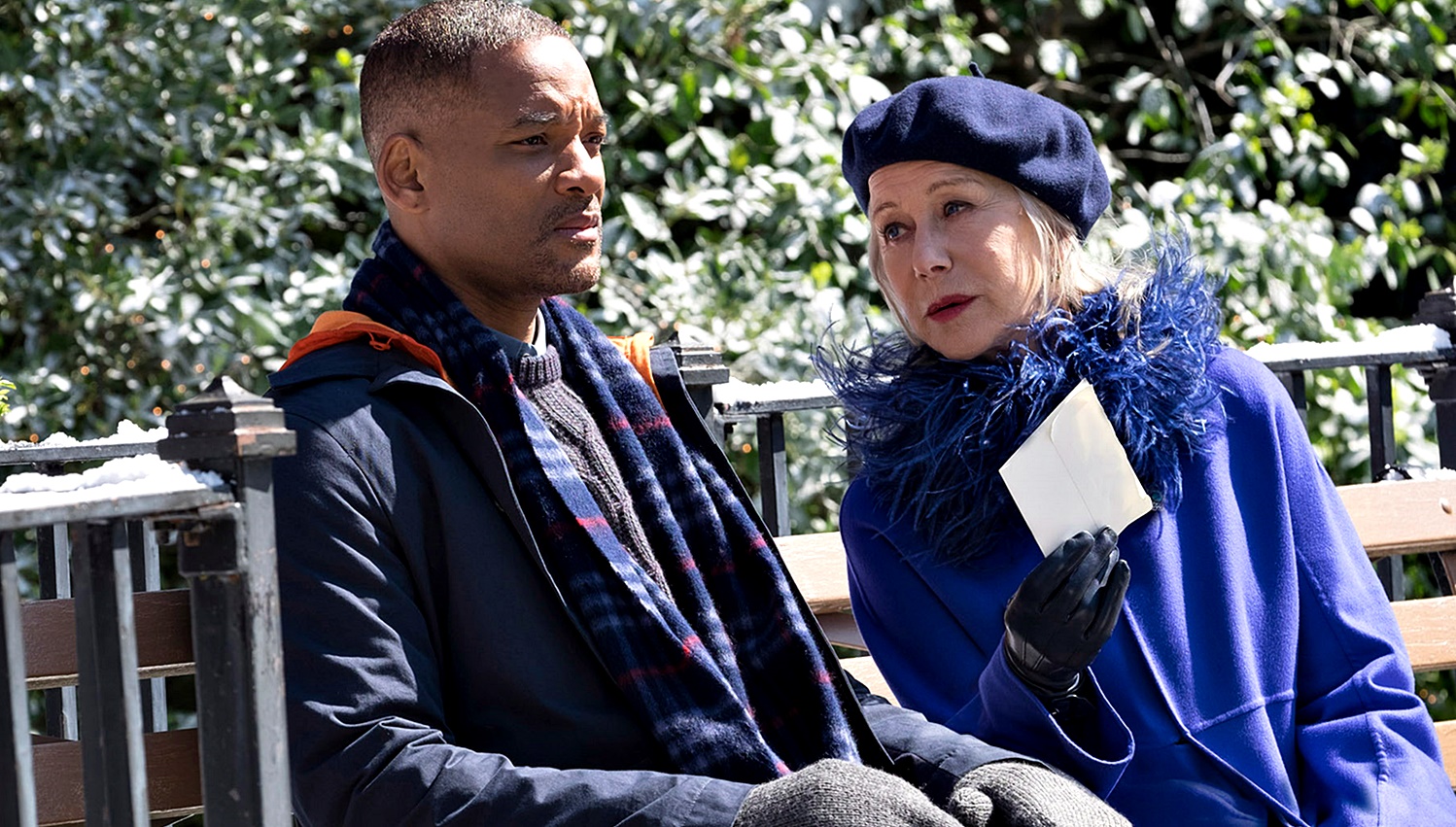
Collateral Beauty
Dustin Chase
Think of a Lifetime movie, but with Oscar winners and nominees. That’s what director David Frankel’s Collateral Beauty amounts to. If you have never seen a Lifetime film, it’s a network that produces movies that are often contrite, more focused on getting an emotion out of its audience, regardless of the means or accountability in which they get you there. Collateral Beauty is the latest in the Will Smith – holiday heartbreak collection, following Seven Pounds and The Pursuit of Happiness. The screenplay is manipulative how it uses music and teary eyed close-ups to get to the viewer, without authentically leading the story to that point. It’s as if they plot point the “cry” here moments, as they string us along with a mysterious plot that is always obviously on the nose. However, I think astute viewers will be able to pick apart the story long before its conclusion.
Three years ago Howard Inlet (Smith) was the most successful partner at his New York advertising firm. It was Howard’s energy, his focus on three abstracts; Love, Time and Death, that connected with their clients. Howard lost his 6-year-old daughter, and his world came crumbling down like the elaborate dominos he likes to construct. His work family Claire (Winslet), Whit (Norton) and Simon (Peña) have all tried to intervene, but Howard’s grief has become destructive and now the entire firm is in danger. They hire three local actors who will pretend to be Time (Jacob Latimore), Love (Knightley), and Death (Mirren) pushing Howard to the brink of madness so the lawyers can save the company from bankruptcy.
Works or fails on whether you can buy into this elaborate scheme that’s part realty and part fantasy
Collateral Beauty works or fails on whether you can buy into this elaborate scheme that’s part realty and part fantasy. Allan Loeb’s script asks a lot of the viewer, mostly to be patient until it gets to the point. It’s a simple story of a father dealing with grief searching for catharsis, made complicated by editing and an exaggerated “Christmas miracle” plot. For the majority of the film, Smith doesn’t speak or react, he walks around with his grief, being, but not delivering. The burden then lies on performances from the rest of the cast which get equal, maybe even more, screen time than the Independence Day star. Reliable tears from Winslet, Harris and in one scene Smith, are the film’s most authentic moments. In a scene where Harris (Moonlight) explains the importance of collateral beauty, it’s is the only time I felt the film tap into something honest, but it’s a fleeting moment.
It becomes obvious early on that each “abstract” isn’t just helping Howard, but the counterpart who hired them. Each character has their own mini-story which causes a lot of congestion as the screenplay tries and fails to quickly flush out the subplots. It’s the manipulation that really sinks this film. I would compare it to The Sixth Sense, when you re-watch that movie, it’s very careful to make sure all the “trickery” adds up as not to be a gimmick. Re-watching Collateral Beauty, it would not, things are said, done, and shown that debunk the authenticity of what it’s selling, despite the heartbreaking themes and sadness it’s distracting you with. Collateral Beauty might work as a coping tool for those uninterested in whether it makes quantifiable sense or not, but it’s a hammy movie without style or a lot of substance.
Final Thought
Manipulates emotions rather than earning them genuinely.
